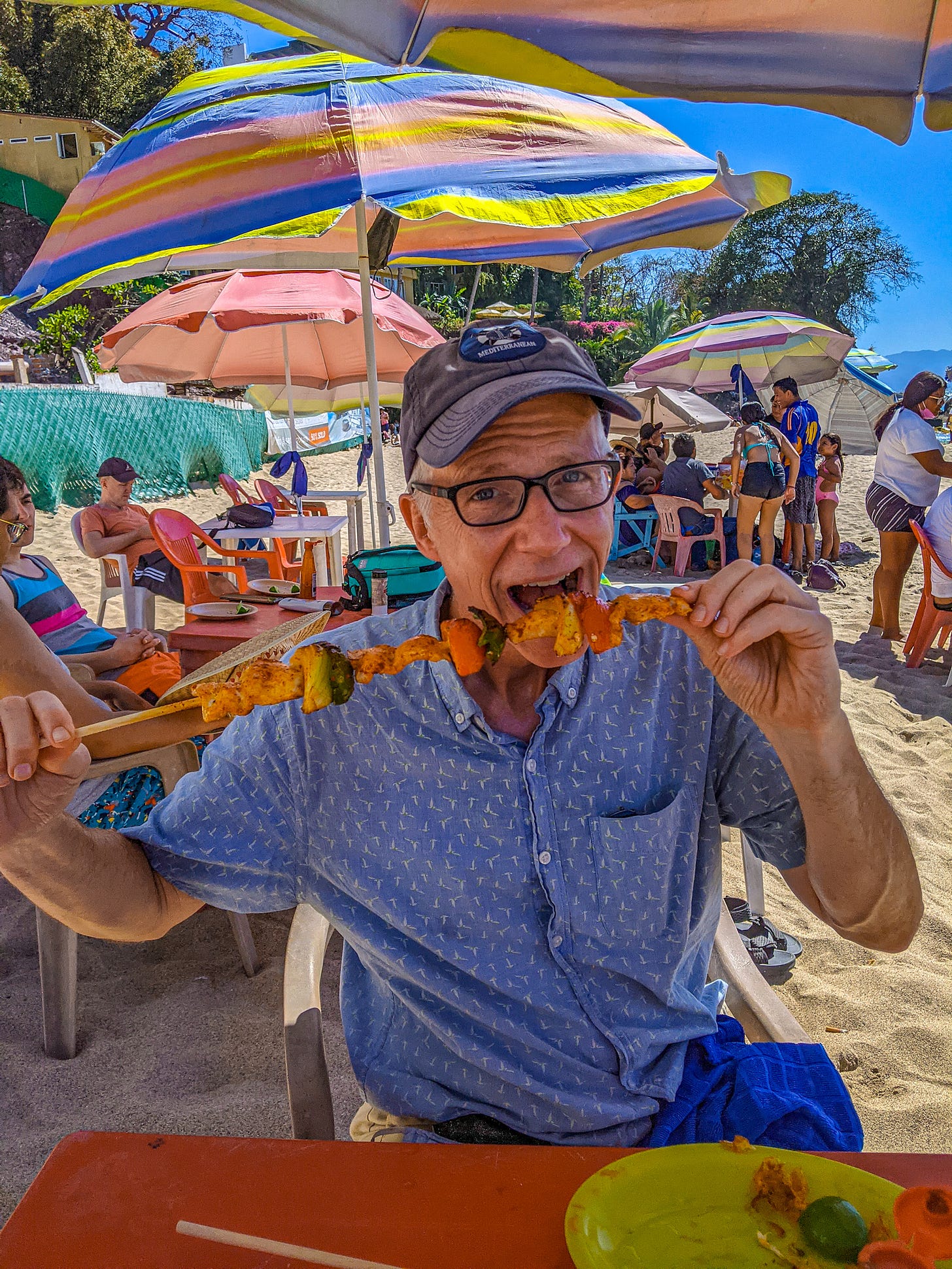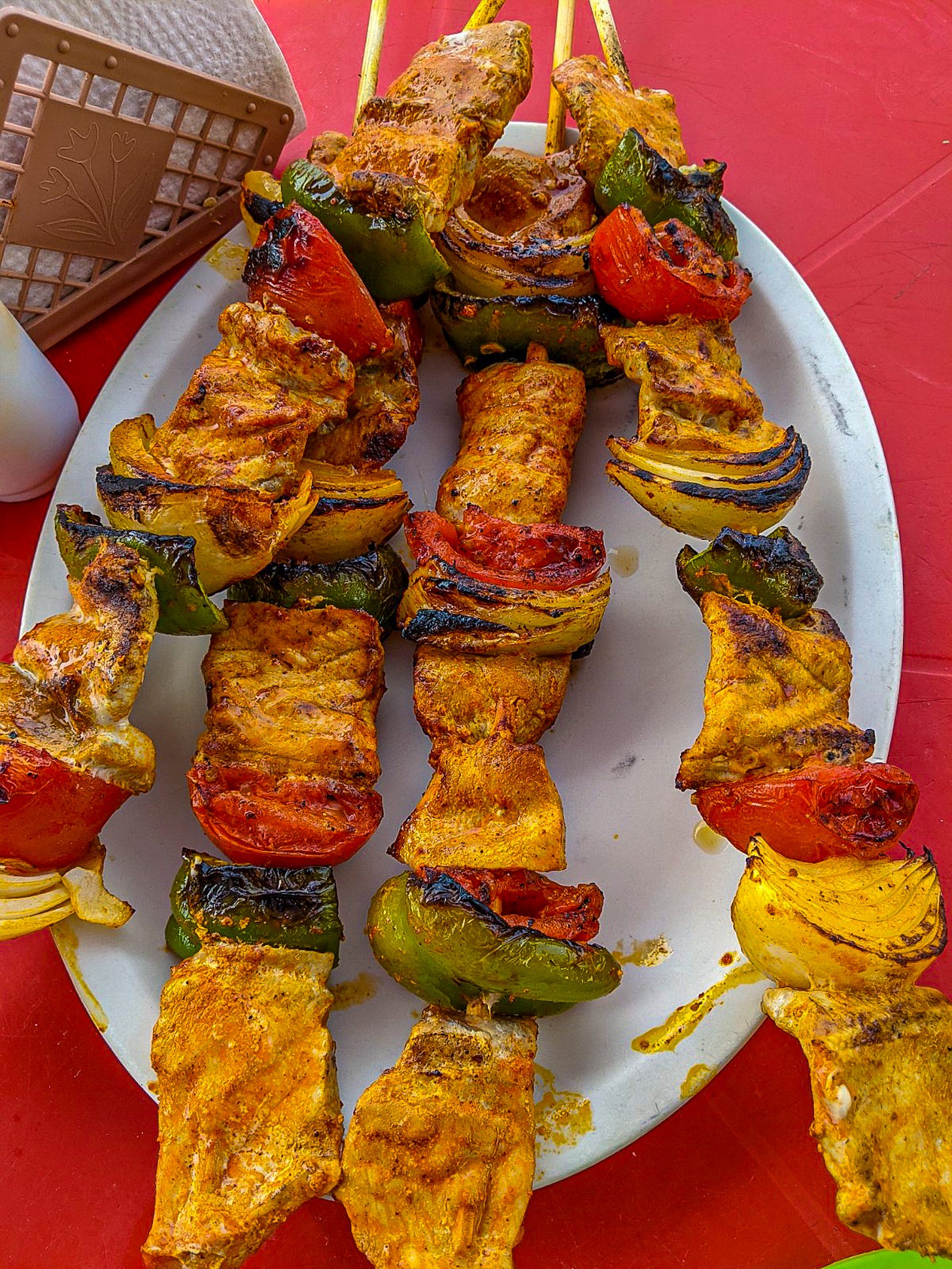Why I Never Get Sick of Mexican Food (at least When I'm Living in Mexico)
The answer surprised me.
Who doesn't love Thai food? Or Italian food? Or Mexican food?
For as long as I can remember, I've definitely loved all three.
But I couldn't imagine eating almost nothing but Thai, Italian, or Mexican food every day for months on end. The idea of having the same ethnic cuisine night after night seemed unappetizing, to say the least.
Then my husband and I left to become "digital nomads," working remotely and indefinitely traveling the world. We've since lived in countries like Thailand, Italy, and Mexico for many months at a time.
And I've never gotten sick of the food. Even if I lived in most other countries for a year or more, I now know I would never get sick of the food.
Let's start with the obvious: I thought I knew these and other foreign cuisines, but I didn't. Except on brief international trips, I'd never had truly authentic versions of these foods before.
But when I lived in Italy, I quickly learned that real Italian food varies greatly by region. And even in Northern Italy, which is closer to what most Americans think of as "Italian food," it wasn't nearly as heavy on tomato sauces, and thick cheeses, and strong garlic as I was used to. Those are all adaptations for American palates.
And in Southern Italy, where I spent most of my time, the meals were filled with dishes I hadn't seen much of in Italian restaurants before: all manner of fresh seafood, and also lots of fresh fruits and vegetables. Pasta was definitely a thing, but so were polenta, couscous, bruschetta, and risotto.
In short, Italian food was much richer and more varied than I knew.
The food was also simply better than anything I'd been eating back in America — American or Italian.
Like, way better.
Take pizza. Literally every ingredient in an Italian pizza seems to taste better than anything in an American pizza, from the rich cheeses, to the freshly harvested herbs, to the tomatoes, which are generally served fresh in Italy, not stewed. Even the flour in Italian pizza is better, since it's a softer and sweeter variety, grown in limestone Italian soils, and ground super-fine.
I'm not usually one for sweeping generalizations, but after living outside of America for three and half years, I've reluctantly come to conclusion that the rest of the world places a higher priority on their food tasting, well, good.
Americans may love to watch cooking shows, but the actual food we eat? Even if it’s not “fast food,” it’s usually loaded with salt, sugar, and fat.
Those things taste “good,” of course. But they also overwhelm. Can a symphony be good if it’s all crashing symbols and booming cannons? When it comes to food, subtly and complexity are really important. They’re what make food interesting.
It's definitely possible to get great, interesting food in America, but man, it'll cost you. There's some good cheaper stuff, but it's mostly in regional exceptions like New Orleans. Either that or it's the more authentic versions of food from other countries served by, yes, immigrants.
As good as that food can be, it's even better back in the homeland.
The food in Thailand, for example, was almost ridiculously delicious. As in Italy, it was quite different than the American versions of Thai food I was used to, and also far more varied.
We'd been living in Thailand for two months, eating out almost every meal (because it is extremely cheap by Western standards), when we finally had a bad meal in a restaurant. It was a real shock, and we had a good laugh about it, because at that point, we had basically forgotten that it was even possible to get a bad meal in a restaurant.
At first I didn't understand how a dish as simple as pad thai could taste so amazing. It has less than ten ingredients!
But as in Italy, the secret to their culinary success is instantly clear: meals are made from fresh, local ingredients, and always prepared to order. And the cuisine is absolutely a source of national pride.
Unlike in America, quality is way more important than quantity.
Living in Georgia (in Eastern Europe), I hadn't expected to love the local cuisine, but I did, in part because I hadn't ever tasted anything exactly like it: a combination of roasted meats, stewed and marinated vegetables, rich nutty sauces, and, oh God, those delicious khinkali dumplings, which are made from a thick white dough, and then boiled, which cooks the herbed meat, cheese, or vegetables inside, and also creates a luscious, piping hot broth which is supposed to be sucked out before consuming the rest of the dumpling. Because of this tasty, sealed-in broth, these dumplings don't even need a dipping sauce.
In fact, the tastes and flavors of the first few meals I had in Georgia were so interesting and complicated that I thought the local chefs were trying to impress me with flashy deconstructions and pretentious pan-Middle Eastern innovations.
So after a week of such meals, I said to our dining companions, "Why don't we try traditional Georgian cuisine some night?"
And one friend said, "This is traditional Georgian cuisine," which instantly blew my mind.
In other countries, you can often get great food even in airports. Airports!
I have many theories as to why "mainstream" food is so bad in America. I think it has to do with the fact that we value different things than the rest of the world: convenience, efficiency, and cost.
There's a reason that while Italy was preserving its ancient traditions of different flours perfectly suited to different dishes, America came up with "all-purpose flour."
But that convenience came at the price of flavor.
There are absolutely countries that love their meat — Mexico, for example. But in most countries, especially in Asia, meat mostly exists as a compliment to the rest of the meal. Since the rest of the meal is just as important as the meat, far more emphasis is placed on it.
If Americans are good at anything, food-wise, it's that we love to innovate. Americans don't value tradition and traditional cultures like the rest of the world. In America, every assumption is open to question, even the ones we make about food.
It was Americans, after all, who decided to put more than one topping on their pizzas — though some would argue that innovation is undercut by the American insistence on making pineapple one of those many toppings.
Of course, the desire to innovate and popularize can mean that Americans sometimes appropriate and monetize foreign cuisines in ways that are ethically questionable. This whole topic gets complicated fast.
And part of the reason why American food is so loaded with salt, sugar, and fat is that corporate scientists have discovered that those substances are addictive, causing cravings in consumers. Those substances may not be great for individuals or the overall society, but they're fantastic for the bottom line.
As for me, I'm writing this essay having just returned from a lovely meal on a Mexican beach. It was nothing more than street food served by a family that sets up a barbecue every day and serves guests who sit at plastic tables and chairs under sun-umbrellas sunk in the sand, not ten feet from the crashing waves.
To start, we had tostadas ceviches, which are small tostados topped with bits of raw fish "cooked" in lime juice then mixed with onions, chili peppers, and coriander, and served with generous slices of fresh avocado.
For our main course, we had red snapper grilled on skewers with fresh vegetables, with fresh tortillas on the side.
On one hand, it was exceptional, in that the food was sublime. I had watched the cook as she roasted our particular skewers, and I swear to God she must have basted them at least ten times with turned out to be a delectable marinade.
On the other hand, the meal was completely unexceptional, because this is now how we frequently eat, and how much of the rest of the world usually eats. Street food is the cheapest way to eat in many countries, the "fast food" of the rest of the world.
This whole meal cost about twelve US dollars, including a generous tip, which is actually very expensive by Mexican street food standards. Then again, we were in a tourist-y area, and the view was spectacular. We're well aware that our travels come with massive American privilege. On the other hand, we're also supporting local businesses — people who clearly take pride in what they do.
Either way, how the hell could anyone ever get sick of food like this?
Brent Hartinger is a screenwriter and author, and one half of a couple of traveling gay digital nomads. Visit us at BrentAndMichaelAreGoingPlaces.com, or on Instagram or Twitter.
Like this article? Subscribe to our free newsletter for more content like this!








I really like your blog!
Great article!